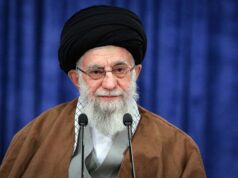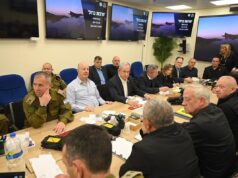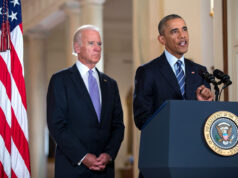Discussions focusing on Tehran’s nuclear enrichment program resumed in Istanbul on Saturday marking the end of a 15-month stalemate between Iran and the 5 permanent UN Security Council members plus Germany, known as the P5+1. As a means to gauge Iran’s sincerity in addressing concerns regarding its contentious nuclear agenda, the talks were deemed both “constructive and useful” as well as the beginning of a “sustained process of serious dialogue.”
While future negotiations will reportedly be guided by a “step by step approach and reciprocity”, the projected confidence of progress in last weekend’s dialogue fails to address that, despite Iran’s offer to scale back its uranium enrichment, the rogue state still maintains an unrelenting conviction that it is entitled to enrich uranium to a grade of 20 percent. Furthermore, the Islamic Republic has refused to discontinue its nuclear fuel production and has actively ignored the West’s principal demand that existing stockpiles of 20 percent enriched uranium be removed from the country.

Iranian soldiers march in Tehran on Tuesday for the National Army Day parade. (Photo: UPI) |
Also, contradictory to Iran’s chief nuclear negotiator Saeed Jalili’s declaration that the next round of talks — expected to be held in Baghdad on May 23 — will be geared towards fostering confidence in Iranians, a military parade celebrating National Army Day in Tehran on Tuesday served only to reinforce apprehension in Iran’s progressing nuclear program.
The parade, which highlighted the state’s 2,000 pound guided bomb named “Qadr”, also included a procession of homemade missiles, tanks, drones, jet fighters, and other existing resources in an effort to showcase Tehran’s self-sufficient military program. Additionally, in a message likely meant for the U.S. and Israel, in which a preemptive attack or military interference against Iran’s enrichment facilities remains a plausible policy option, President Mahmoud Ahmadinejad declared that Iran’s army would “make the enemy face a heavy and shameful regret if they commit any aggression and violate Iran’s interests”.
As a prominent human rights transgressor, host to a fundamental anti-Western agenda, and puppet master of Hezbollah and other terrorist organizations, a nuclear Iran threatens global stability while simultaneously provoking an arms race in a volatile Middle East. In making public allusions that progress with Iran is possible through continued diplomatic measures, policy makers grant the Islamic Republic an undeserving legitimacy as a rational state actor while allowing valuable time for it to advance its nuclear capabilities.





